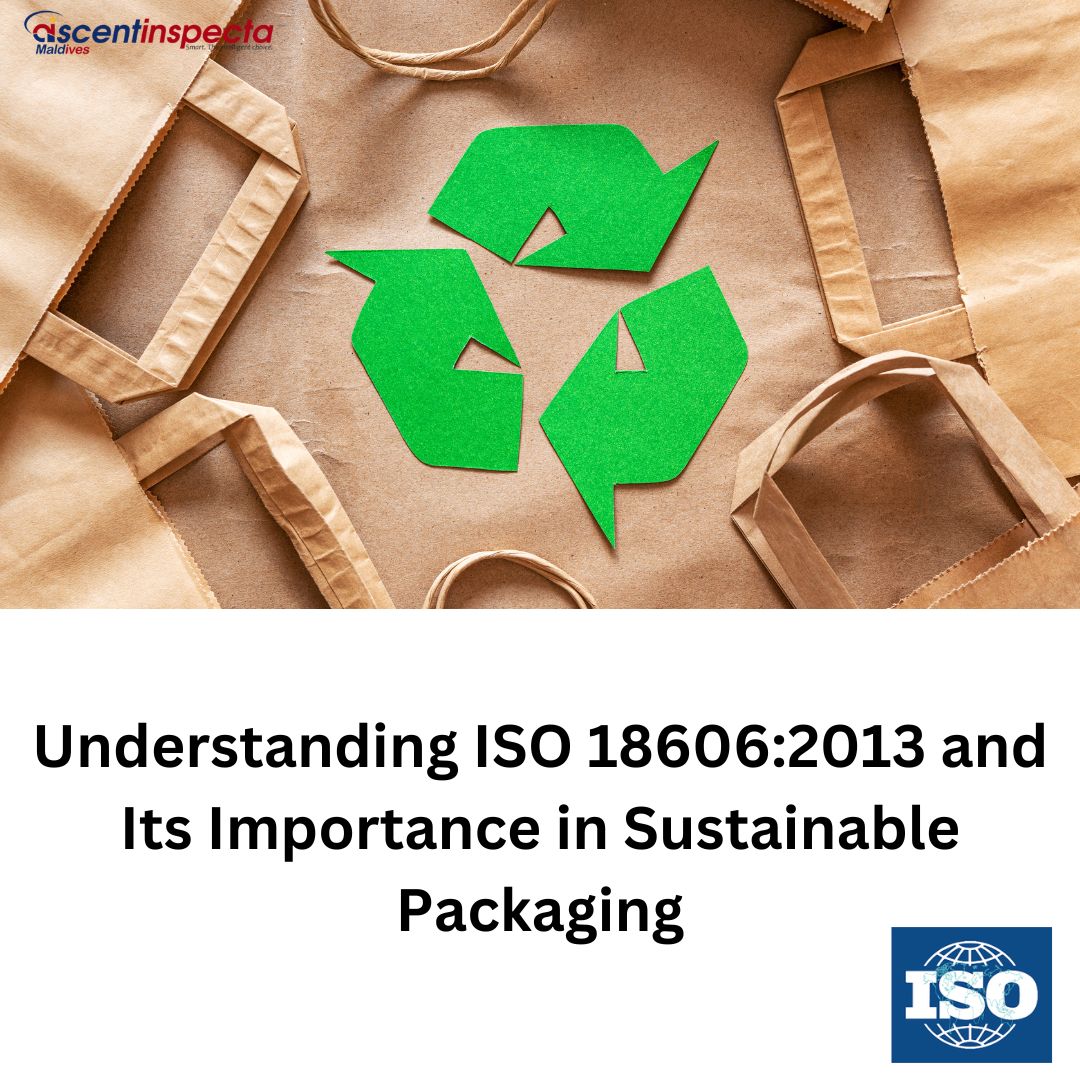Blog Details

Understanding ISO 18606:2013 and Its Importance in Sustainable Packaging
Published on: March 11, 2025
Introduction
In today’s world, environmental sustainability is a top priority for businesses and consumers alike. As industries strive to reduce their environmental impact, packaging plays a crucial role in these efforts. ISO 18606:2013 provides a framework for evaluating the compostability of packaging materials, ensuring that packaging waste can be treated in organic recycling facilities, thereby reducing landfill waste and promoting a circular economy.
What is ISO 18606:2013?
ISO 18606:2013 specifies the requirements for packaging materials that are recoverable through organic recycling. It establishes criteria for biodegradability, disintegration, and environmental safety to ensure that packaging decomposes without harming the environment. This standard aligns with global efforts to promote sustainable waste management and reduce the carbon footprint of packaging. :contentReference[oaicite:0]{index=0}
Key Features of ISO 18606:2013
- Biodegradability: Packaging materials must break down into natural substances within a specified timeframe.
- Disintegration: The material should physically fragment and integrate with compost without leaving visible residues.
- Environmental Safety: The compost produced from these materials should not contain toxic elements that could harm soil, plants, or animals.
- Compost Quality: The resulting compost should be beneficial for agricultural or horticultural use.
Importance of ISO 18606 Certification
ISO 18606 certification serves as a benchmark for companies committed to sustainable packaging solutions. Here’s why obtaining this certification is beneficial:
- Regulatory Compliance: Many countries are imposing strict regulations on plastic and non-biodegradable packaging. Compliance with ISO 18606:2013 ensures that businesses meet these legal requirements and avoid potential fines or bans. :contentReference[oaicite:1]{index=1}
- Environmental Responsibility: Consumers are increasingly conscious of their environmental impact. Having ISO 18606 certification demonstrates a company’s commitment to sustainability, enhancing its reputation and consumer trust.
- Market Differentiation: Certified businesses gain a competitive edge by showcasing their commitment to eco-friendly packaging. This can attract environmentally conscious consumers and partners who prefer sustainable products.
- Cost Savings: Investing in compostable packaging and certification can lead to long-term savings by reducing waste disposal costs and potential penalties associated with non-compliant packaging.
- Support for Circular Economy: ISO 18606:2013 aligns with the principles of a circular economy by promoting the use of materials that can be safely reintegrated into the environment. This reduces dependency on virgin raw materials and minimizes waste generation.
The Role of an ISO 18606 Consultant
Navigating the certification process can be complex, especially for businesses unfamiliar with sustainability standards. An ISO 18606 consultant provides valuable expertise and guidance to help companies achieve compliance efficiently. Here's how an ISO 18606 consultant can assist:
- Gap Analysis: Assessing current packaging materials and identifying areas that need improvement.
- Documentation Support: Assisting in preparing the necessary documents for certification.
- Testing & Validation: Ensuring materials meet biodegradability, disintegration, and compost quality criteria.
- Training & Implementation: Educating staff on best practices for sustainable packaging and compliance.
- Audit Preparation: Helping businesses get ready for third-party audits and certification assessments.
Steps to Obtain ISO 18606 Certification
Getting certified requires a systematic approach. Here’s a step-by-step guide:
- Conduct an Initial Assessment: Evaluate your current packaging materials and determine whether they meet the ISO 18606:2013 criteria. If not, identify necessary changes.
- Engage an ISO 18606 Consultant: Hiring a consultant can simplify the process by providing expert insights and ensuring all requirements are met efficiently.
- Material Testing & Validation: Conduct laboratory tests to confirm the biodegradability, disintegration, and environmental safety of your packaging.
- Prepare Documentation: Compile all necessary documents, including test reports, material specifications, and compliance statements.
- Apply for Certification: Submit the required documents to an accredited certification body for review and assessment.
- Certification Audit: Undergo an audit by a third-party certification body to verify compliance with ISO 18606:2013.
- Certification Approval: Upon successful audit completion, your business will receive the ISO 18606 certification, allowing you to market your packaging as compostable and environmentally friendly.
Conclusion
As the demand for sustainable packaging grows, ISO 18606:2013 plays a critical role in ensuring that packaging materials are suitable for organic recycling. Obtaining ISO 18606 certification not only helps businesses comply with environmental regulations but also enhances their brand reputation and market competitiveness. Working with an ISO 18606 consultant can simplify the certification process, making it easier for businesses to transition towards sustainable packaging solutions. By adopting compostable packaging and achieving certification, companies contribute to a greener future while gaining a strategic advantage in the marketplace.
Comments Section
We’d love to hear your thoughts on ISO 18606 certification! Feel free to leave a comment below:
